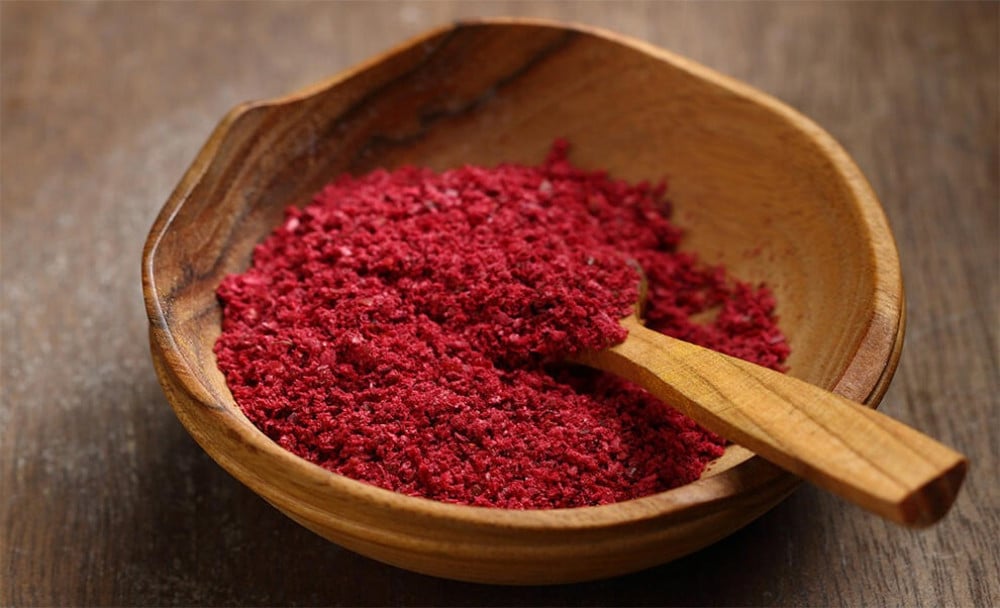
What is sumac?
Sumac is a famous spice widely used in various cuisines around the world. Sumac is native to the Middle East and its surrounding areas, and is mainly used to enhance the flavor of food and add a distinctive taste to dishes. Sumac comes in the form of small seeds that are bright red in color and have a delicious sour flavour.
Sumac has a long history of use in cooking and traditional medicine. Recent research has shown that sumac contains a group of nutrients and plant compounds that give it multiple health benefits. In this article from the Atara website, we will discuss a detailed study about sumac and its health benefits.
Sumac composition:
Sumac is made from the seeds of the sumac plant, which grows in various regions around the world, including the Middle East, the Mediterranean countries, Central Asia, and India. Sumac seeds are distinguished by their bright red color and acidity, which gives them a distinctive flavour. Sumac seeds are usually dried and ground to obtain sumac powder which is used in food preparations.
Nutritional value of sumac:
Sumac is rich in plant compounds and important nutrients that give it multiple health benefits. Below is the approximate nutritional value of sumac powder (per 100 grams):
- Calories: 315 calories
- Fat: 10.3 grams
- Carbohydrates: 57.7 grams
- Dietary fiber: 24.9 grams
- Protein: 10.9 grams
- Calcium: 1387 mg
- Iron: 28.9 mg
- Potassium: 961 mg
- Vitamin C: 169.5 mg
- Vitamin A: 1652 IU
Health benefits of sumac:
Sumac is an important source of vitamins, minerals, and powerful plant compounds that give it amazing health benefits. Scientific studies have shown that consumption of sumac contributes to:
- Improving cardiovascular health: Turkish sumac contains a high percentage of potassium, which plays an important role in improving cardiovascular functions. Potassium contributes to regulating heartbeat and blood pressure, thus reducing the risk of heart disease and stroke.
- Supporting the immune system: Sumac contains antioxidants such as vitamin C, carotenoids, and polyphenols, which contribute to strengthening the immune system and fighting diseases and infections.
- Protection against chronic diseases: Sumac aids the digestion process and helps reduce bloating and intestinal gas.
- Support bone health: Sumac contains high levels of calcium, iron, and manganese, which help build and maintain strong, healthy bones.
How to use sumac in food preparations:
Sumac is a spice that can be used diversely in food preparations to add a distinctive flavor and color. Among the common uses of sumac:
- Preparing seafood: Sumac can be added to seafood such as fish and crustaceans to add an acidic flavor and add a touch of special taste.
- Preparing grilled foods: Sumac can be added to grilled foods such as vegetables, meat, and chicken to add an acidic flavor and enrich the taste.
- Preparing soups and stews: Sumac can be added to soups and stews to add a refreshing acidic flavour.

